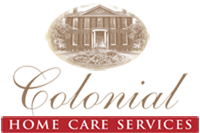Although they share similarities, non-medical home care and home health care aren’t the same. For example, Medicare provides coverage for many skilled care nursing and therapy services but not for non-medical home care. As a vested family member, knowing the difference between the two types of in-home services is essential when your aging loved one’s care weighs in the balance. Whether it’s home health care or non-medical home care, this guide will help ensure that your senior gets the quality care they deserve.
What is Senior Home Care?
Non-medical home care services help aging-in-place seniors with activities of daily living (ADLs) they can no longer do on their own. Professional aides’ level of in-home care varies depending on the health of the care recipient and whether they are also getting assistance from friends and family members.
And although home care aides are trained to understand most aspects of senior care, they are usually not licensed to perform medical services.
Examples of senior home care include:
- Companionship
- Light housekeeping
- Transportation
- Food shopping, meal preparation, and meal deliveries
- Bathing, dressing, and grooming
- Toileting and incontinence care
- Bill paying or financial management assistance
- Medication reminders
Who Might Benefit from Home Care?
In general, otherwise active older adults who might benefit from home care services include those who:
- Need transportation to and from activities and medical appointments
- Need help with cleaning, cooking, and other household duties
- Feel lonely and isolated in situations where companionship might be beneficial
- Need assistance with personal care
What is Home Health Care?
On the other hand, home health care is clinical, medical supervision provided by a licensed healthcare professional like a nurse, physical therapist, occupational therapist, or social worker. Home health care services are usually delivered through home health agencies or, in rarer instances, by hospice agencies.
Home health care is often referred to as “skilled” care and may include these services:
- Wound care and dressing changes
- Physical and occupational therapy
- Administration of prescription medications or shots
- Medical testing
- Monitoring of the recipient’s health status
How is Home Health Care Ordered?
A doctor usually orders home health care as part of an overall recovery care program following a hospital stay, surgery, or serious injury.
Older adults who might benefit from home health care include those who:
- Have recently been discharged from the hospital, a skilled nursing facility, or rehabilitation center
- Need monitoring after a recent medication change
- Are in fragile health that prevents them from safely traveling to and from appointments
- Are experiencing an overall decline in function and who might benefit from therapy to regain their independence
Who Pays for Senior In-Home Care?
Home health care falls under the “medical services” umbrella, while home care does not, so insurance providers tend to cover each type differently. Here are some general insurance guidelines to help you during the planning process:
- Medicare and private insurance. These plans cover skilled care home health services when prescribed by a doctor. Home health care benefits are available to any senior who qualifies for Medicare insurance.
- Medicaid. Medicaid insurance covers both types of in-home care for income-qualified seniors, although benefit amounts vary by state.
- Long-term care (LTC) insurance. If you have an LTC insurance policy, it may provide at least some coverage for home care services.
Using a Team Approach
Some families find that combining both types of in-home services is the best way to maintain their aging loved one’s quality of life, for example, after a lengthy hospital stay. Under this holistic caregiving approach, healthcare professionals provide essential medical care, while home care aides assist with ADLs— combining their efforts to ensure that the senior’s physical, mental and emotional needs are being met.
An Extended Family in Your Loved One’s Home
Providing an aging loved one with non-medical in-home care on your own can be challenging. As a locally owned and family-operated provider, Colonial Home Care Services makes it easy for families to keep their aging loved ones safe- even with little notice in an emergency. At CHCS, we take great pride in carefully selecting and thoroughly screening our caregivers to ensure all have the right skills, knowledge, experience, and personality.
As a family-trusted home care provider serving Orange County, Long Beach, Mission Viejo, and surrounding communities, CHCS has been providing peace of mind to those we serve for over 25 years. To learn more now about our award-winning home care services or to schedule a FREE in-home assessment for a senior in our service area today, please visit us at www.colonialhomecareservices.com.




